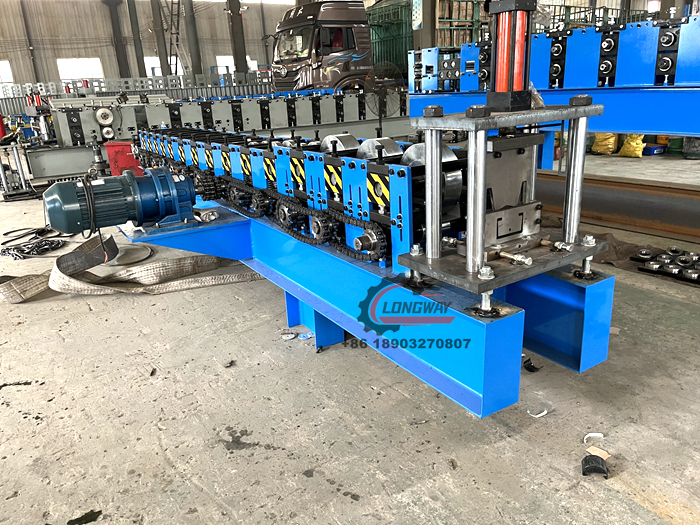glazed roof tile roll forming machine
Glazed Roof Tile Roll Forming Machine Revolutionizing Roofing Solutions
The construction industry has witnessed significant advancements over the years, particularly in the methods of creating building materials. One noteworthy innovation is the glazed roof tile roll forming machine. This sophisticated piece of equipment is designed to efficiently produce stylish and durable roof tiles that are not only functional but also aesthetically pleasing.
What is a Glazed Roof Tile Roll Forming Machine?
A glazed roof tile roll forming machine is a specialized industrial device that creates ceramic-like roofing tiles from metal sheets, typically steel or aluminum. The process begins with feeding the raw material into the machine, where it undergoes a series of shaping, bending, and curving processes. The end result is a roof tile with a glazed finish, which mimics the look of traditional clay tiles but offers enhanced benefits such as durability, lightweight properties, and ease of installation.
The unique feature of this machine is its capacity to produce tiles en masse, significantly increasing production efficiency compared to traditional hand-made methods. Moreover, machines can be customized to produce tiles of various sizes, styles, and finishes, meeting the diverse needs of the market.
Advantages of Using Glazed Roof Tile Roll Forming Machines
1. Durability Glazed roof tiles made through this process are highly resistant to the elements. They can withstand harsh weather conditions, including heavy rain, snowfall, and UV rays, making them a long-lasting roofing solution.
2. Aesthetic Appeal The glazed finish provides a rich, polished look that enhances the overall appearance of buildings. This makes these tiles popular among homeowners and architects alike who seek both style and function in roof design.
glazed roof tile roll forming machine

3. Lightweight and Easy to Handle Unlike traditional clay tiles that can be heavy and cumbersome, glazed metal tiles are significantly lighter, simplifying transportation and installation.
4. Cost-Effectiveness The modern manufacturing process reduces waste and production costs, enabling manufacturers to offer competitive prices to consumers. Additionally, the energy efficiency of these metal tiles can lead to long-term savings on heating and cooling.
5. Versatile Applications Glazed roof tiles are suitable for various applications, including residential homes, commercial buildings, and even historical restorations, as they can replicate the look of traditional tiles.
Efficient Production Process
The roll forming process employed by these machines is crucial for achieving high precision and consistent quality in tile production. After the metal sheets are fed into the machine, they pass through a series of rollers configured to shape the sheets into the desired tile design. After forming, the tiles are coated with a glaze to enhance their appearance and provide additional protection against corrosion and fading.
Once the tiles are formed and glazed, they undergo quality control checks to ensure that each piece meets industry standards. This might involve testing for thickness, durability, and finish quality before they are packaged for distribution.
Conclusion
In summary, the glazed roof tile roll forming machine is an integral innovation in modern construction, offering numerous advantages that cater to the evolving needs of the industry. Its ability to produce high-quality, durable, and aesthetically pleasing roof tiles at scale has transformed roofing solutions, making it a go-to option for builders and homeowners looking to combine functionality with visual appeal. As construction technologies continue to develop, the glazed roof tile roll forming machine stands at the forefront, leading the charge in creating not just roofs, but also a sustainable future for building materials.
-
Roof Panel Machines: Buying Guide, Types, and PricingNewsJul.04, 2025
-
Purlin Machines: Types, Features, and Pricing GuideNewsJul.04, 2025
-
Metal Embossing Machines: Types, Applications, and Buying GuideNewsJul.04, 2025
-
Gutter Machines: Features, Types, and Cost BreakdownNewsJul.04, 2025
-
Cut to Length Line: Overview, Equipment, and Buying GuideNewsJul.04, 2025
-
Auto Stacker: Features, Applications, and Cost BreakdownNewsJul.04, 2025
-
Top Drywall Profile Machine Models for SaleNewsJun.05, 2025








